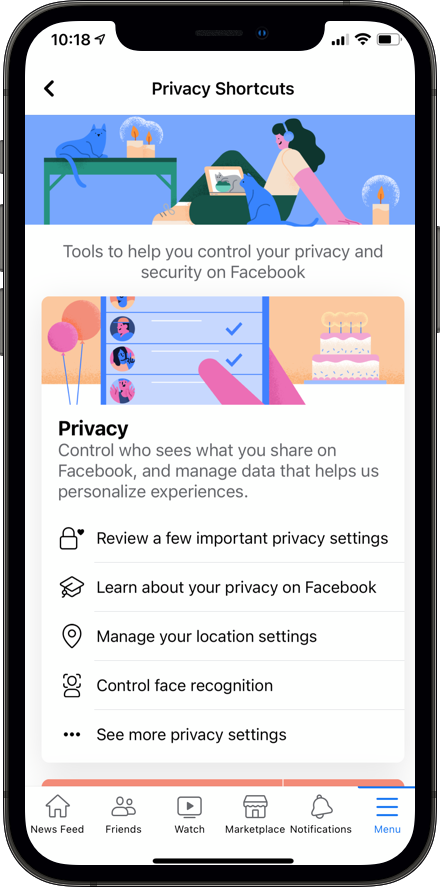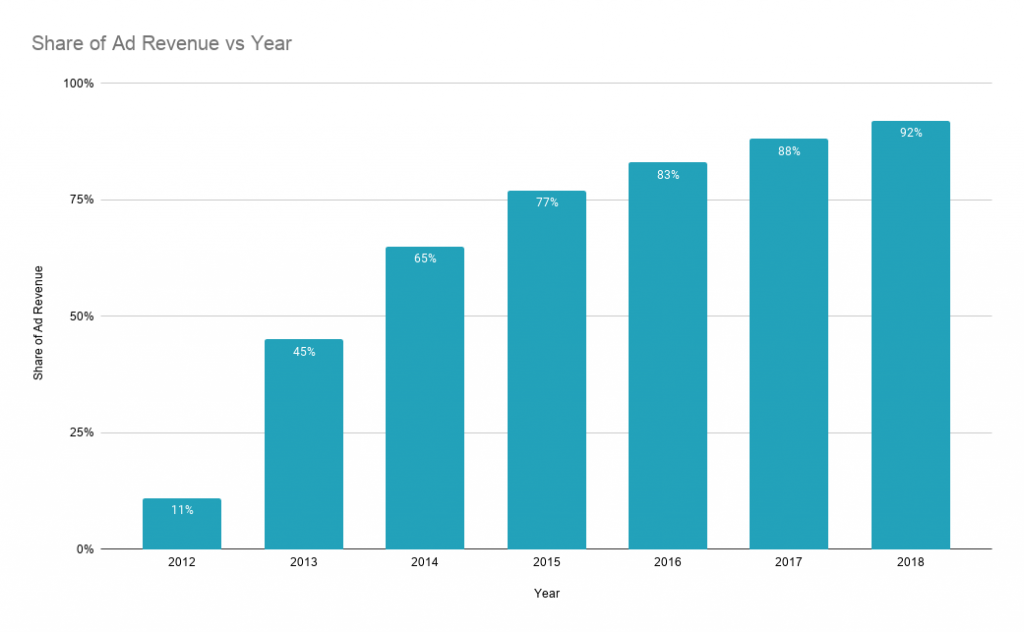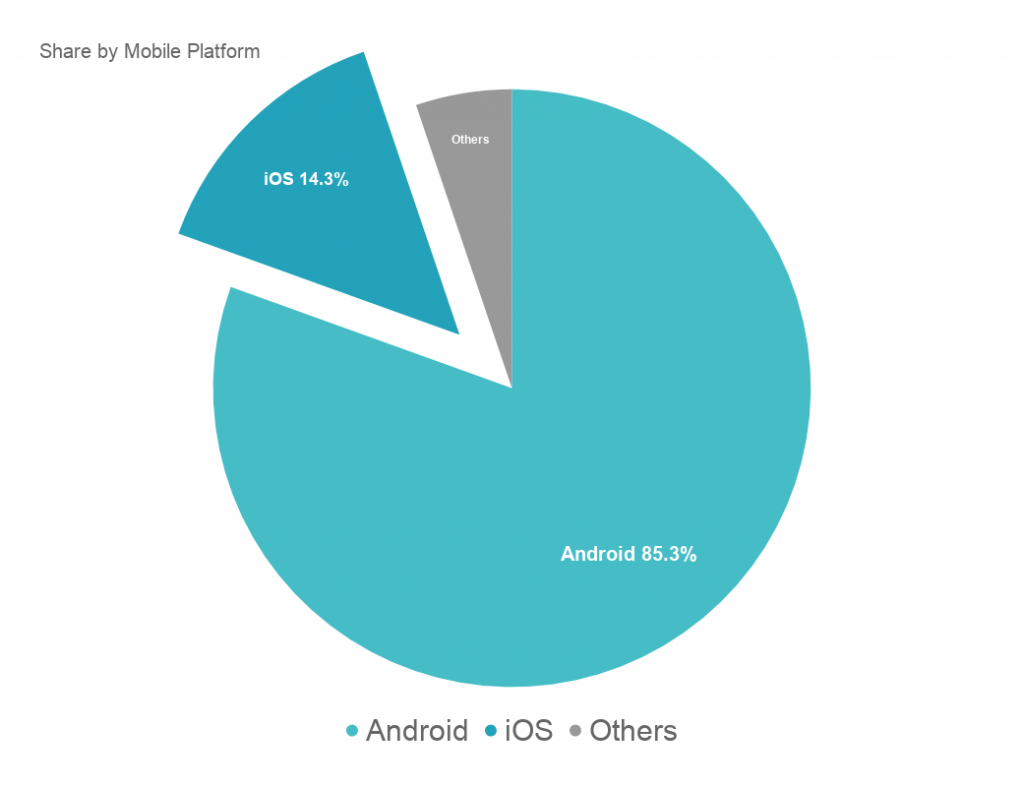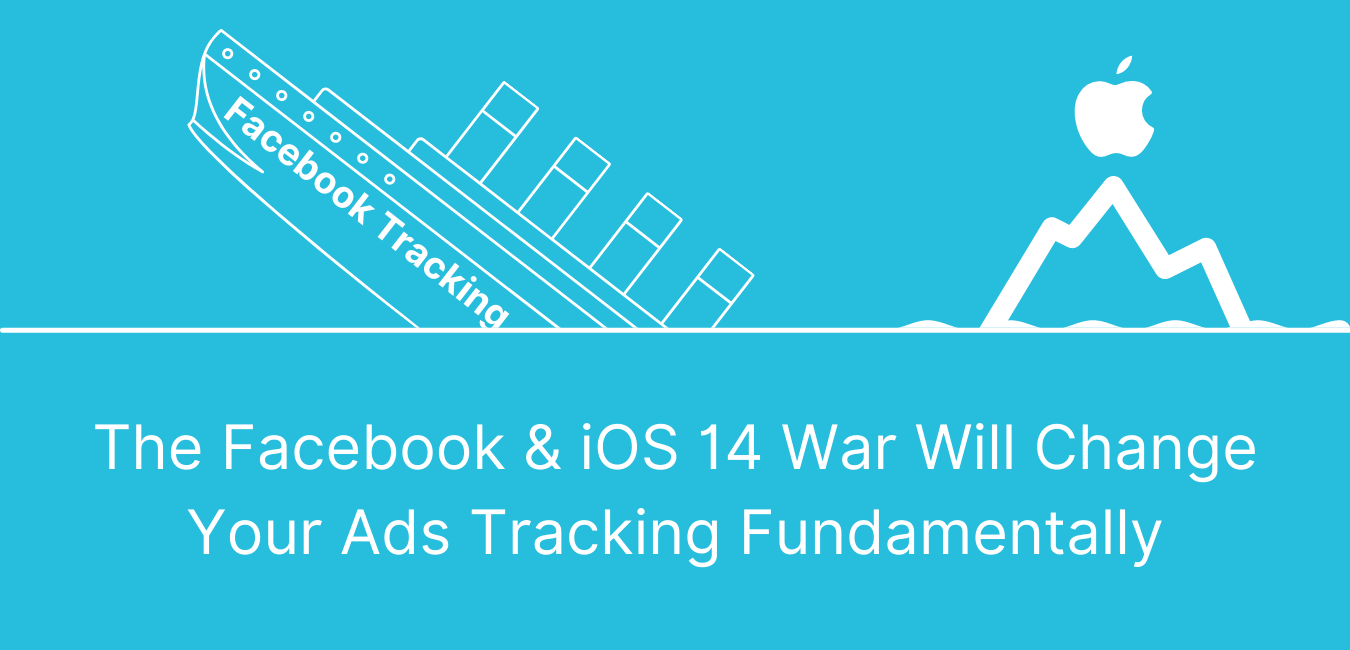Apple’s new iOS 14 has created havoc with the app industry. Its tracking prompt makes it tougher for the apps to run ads through social media engineering, which is going to impact large brands, especially Facebook.
The upside?
We are going to see how this tracking prompt is going to influence business and how it can be minimized to make the most of this situation.
Before that, we must get to know what this tracking prompt is and why is it stirring so much alarm with big stakeholders?
Let’s get started.
What is App Tracking Transparency (ATT)?
Apple has the safest phones ever created since the brand’s conception. This, coupled with the tracking transparency, allows apps to be totally in control by the user. The apps can no longer use customer data or track consumer behavior without permission via this update.

What is the New iOS 14 Update?
The tracking prompt, namely App Tracking Transparency, in the latest Apple product is going to stop apps from tracking the user behavior in order to show them relevant ads. Facebook particularly used this marketing technique and helped people build businesses based on this marketing strategy.
Due to this, Facebook and all businesses based on consumer behavior tracking are conflicted. The reason being they would not be able to run ads for brand promotion and use consumer data.
In response, Apple’s CEO Tim Cook states:
“If a business is built on misleading users, on data exploitation, on choices that are no choices at all, it does not deserve our praise. It deserves reform.”
According to Apple’s narrative, Facebook has only paid lip service to its user privacy. The PR war has just begun. The entire Internet is taken by storm. It is only a matter of time before Apple dominates every major brand in the market.
Why is iOS 14 a Problem on Facebook?
Facebook has voiced its concerns earlier and is now strongly condemning Apple’s move. Mark Zuckerberg has considered it an obstacle for growing small businesses. Meanwhile, proving how much data the site has been using without user consent.
Despite being called a privacy-oriented site, Facebook has always relied on user information. Earlier users were unable to stop sharing that information. However, once ATT gives them a choice, they will opt-out of it.
Loss of Revenue
This may also cause Facebook to lose millions, if not, hundreds of millions coming from multiple brands through remarketing. Prior to this, Facebook earned about 86 billion in revenue alone in 2020. The panic for Facebook is real.
This is the major reason Facebook has been actively criticizing ATT. The dominion effect unleashed by this act is costing millions of dollars to Facebook.
Surprising news?

Facebook’s take on the subject
Facebook has shaped its narrative calling out Apple as an opponent to small business. It is a farce. In reality, Facebook is being directly hit as it will lose big corporate brands that opt for Facebook marketing. Once these brands see how they cannot run ads through data collection, they will turn to new competitors, causing a downfall to Facebook.
Whatever Facebook says, it is panicked for itself, not others. This means Facebook will no longer be the major game-changer.
Though the iOS 14 prompt makes it impossible for apps to conduct data collection, it is notable that this rule would not be applied to itself. This prompt is not only about revenue but also tends to consolidate the dominance of Apple over the market.
Past scandals
With the past user data collection scandals, it is deemed as an intelligent move by the general public. The general public sentiment was already against Facebook prior to this, and now as the oblivion ends, the public is voicing support for Apple more.
According to Christian Lovrecich of Pixl Feed Media:
“it will change FB, as we know it forever.”
What measurements will be affected?
Facebook management has voiced how business marketing can be affected. This is changing the use of:
- Ads Manager
- Ads Reporting
- Ads Insights API
While a 7-day click attribution would remain, Facebook is not sure about other measurements. These include any kind of 28-day attribution. In addition to this, 7-day view attribution will also cease to exist.
Keeping these changes in perspective, Facebook intends to move from a data model to a statistical model. This shift may be effective but not very economical for smaller businesses due to their low budgets.
Ads for the target audience will be negated. The conversion may occur. However, this will not be based on ad impressions but rather on the time of conversion.
Moreover, this model will only be a guess. Without actual consumer data, there would only be partial reporting. The drawback to this is that the cause of purchase will remain hidden.
What impact may this have on your business?
Nowadays, business marketing is based on optimizing, targeting and reporting. This is what has been hit by the iOS 14 update. As mentioned earlier, small businesses are in the pickle. They have smaller budgets, and this update encourages in-app payments.
You being the advertiser will have to choose only 8 events for conversion. This is because iOS 14 ATT is just allowing max. 8 events for conversions per Facebook tracking pixel and per domain. Prioritizing only 8 events would be very difficult for new advertisers.
The privacy guidelines of iOS 14 ATT are based on:
- Which data is shared, e.g., user contacts, etc.
- Location of the user. This was also used by bots for advertising purposes.
Taking away these two, the advertisers hardly have any reliable data to go by. It would be like walking around blindfolded. Hence, the chaos that has ensued is legitimate.
Decrease in conversion rate

iOS asks for permission of the user. Users already fed up with ads will definitely opt-out of it. Leaving behind a small segment (of hardly 10%) to enable the app for data collection. This percentage does not give enough conversion rates.
Ad tracking would be limited beyond belief. Ad campaigns would be hit in the worst ways possible. Companies would fail to evaluate the reason behind conversion.
Measuring results would become impossible. Mariana Carvalho of RankMyApp said:
“The big question is how players and brands will study, adapt to change, and learn how to work with the tools available.”
This is a major limiting factor for business growth.
Future of other brands
Carvalho is concerned about the future of other brands especially the bigger ones.
“Privacy will continue to be an increasingly discussed topic, and not only does Apple promote the protection of its users, but we also have the LGPD knocking on our door, and we need to be prepared.”
According to her, this will not be the end of privacy issues but rather the beginning of this discussion, resulting in more loss of business growth.
Google, one of the major Search engines, intends to follow in the footsteps of Apple. As of 2022, it intends to go cookie-less.
In this case, experts tell Google to stick to UTM tags and Google Analytics for insights.
What does this mean for your advertising efficiency on FB?
The efficiency of ads on Facebook stems from the fact that the path of ads to purchase could no longer be traced. The ads shown might get traffic, but it would be directional. Consequently, the brand would suffer. It would remain in the dark as to where to spend for marketing.
It is noteworthy that Mark Zuckerberg, CEO of Facebook, condemned the move as it would negatively impact
“Millions of businesses around the world.”
Moreover, in his own words, he “will no longer be able to reach their customers with targeted ads.”
In addition to 8 limit conversion, Facebook is also ready for domain pixel ownership. So instead of ad accounts, Facebook pixels will be connected to a verified domain.
This is helpful only for an advertiser who, in turn, holds his own domain. Again, for small businesses, it is a rare case.
Limitations on Conversion Events, # of ads, Pixel per domain, etc.
The biggest drawback of this update is that it limits the buying intention to the conversion rate of the user. The companies would be able to target ads based on geographic and demographic conditions.
However, they will not be able to exactly know the user intent and will have to spend more on advertising without knowing the true factors behind a purchase.
The strategy of 8 events conversion will limit ad accounts to only prioritize 8 events at maximum. Limiting their chances of growth.
Mobile Growth Specialist Laura Kemp says the step is very detrimental for apps. This is because they would not be installed, and the organic downloading will also be decreased.
FB ads will work with less data and more inaccurate data
As the iOS 14 update raises standards of user privacy, it also diminishes directed ad campaigns.
Facebook advertising would suffer, and a negative shift in its algorithm may occur. The entire Facebook algorithm was based on user tracking. This means the end to:
- Personalized ads
- Performance reporting
Change in strategy
There can be a change in strategy for both Facebook and other companies. Facebook, in response to Apple’s privacy update, has proposed Aggregated Event measurement. In order to cope with this situation, Facebook marketers and other companies must adapt.
- Be prepared for the diminishing of view-through attribution.
- Prioritizing events of conversion and registering a proper domain would be the first step.
- Moving towards a 7-day window would be the next step. Everything must be done according to the plan.
- Now the most crucial step. You can enable server-side tracking. This allows you to send events to the Facebook pixel, which can be after viewed as first-party data. This will ultimately help you overcome the loss of conversion which results from cookie limitations.
- Change rules to move to an approach that lacks 28-day attribution.
- Look on the brighter side. The android users would still be in your pocket, given this update is only for Apple users. In addition to this, the opt-outs will also be in your hands.
To conclude this article, nothing can be said with certainty about the changes that may occur due to Apple’s privacy extreme step. The users may end up not letting the prompt take over to avoid any in-app payments. Facebook only needs to play its cards wisely to have the last say along with other stakeholders like Google and Twitter.


